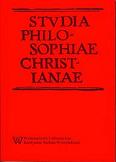Reguły użycia wyrażeń i normatywność znaczenia
Rules of use and the normativity of meaning
Author(s): Janina BuczkowskaSubject(s): Philosophy, Philosophy of Language
Published by: Wydawnictwo Naukowe Uniwersytetu Kardynała Stefana Wyszyńskiego w Warszawie
Keywords: linguistic meanings; rules; norms; conventions; normativity; use of linguistic expressions
Summary/Abstract: This article focuses on some issues in the contemporary debate about the normativity of meaning initiated by Kripke’s famous book. The core of this debate concerns the relationship between the normativity of meaning and the correctness conditions of language use, but fails to deal with the concept of normativity itself. This article aims to discuss this neglected problem, and considers issues such as: What does it mean that rules are normative? How are we to understand the concept of a “norm”, and what distinguishes norms from other types of rules? What is the justification of the normative character of the rules governing the use of linguistic expressions? To begin, Kripke’s thesis of meaning normativity is briefly presented together with its main line of criticism and a defence of this idea. Then various proposals for understanding the concepts of “rules” and “norms” are considered, and the basic features of these two concepts are identified. Next, the idea that the rules for the use of linguistic expressions are socially determined is examined, and the social dimension of language is considered as a possible justification for the normativity of meaning. The last issue considered concerns the relationship between the socially established rules for the use of linguistic expressions and their meaning, which has a referential component. Meaning is connected with content and as such it is not only conventional, but also constituted by a representative function of language. Finally, it is suggested that there are two dimensions of the normativity of meaning: a social dimension, which is granted on normative conventions, and a non-social dimension related to the representative function of language.
Journal: Studia Philosophiae Christianae
- Issue Year: 53/2017
- Issue No: 4
- Page Range: 5-30
- Page Count: 26
- Language: Polish

